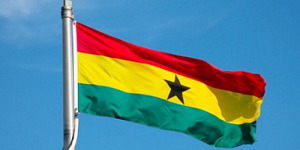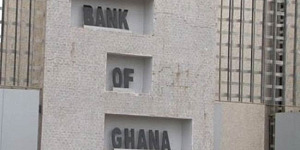Ghana's central bank left its monetary policy rate steady at 17.0 percent, as expected, but said its latest inflation forecasts "show some marginal elevation of the disinflation path" when looking at the rise in petroleum prices, exchange rate depreciation, higher taxes, tighter global financial conditions and higher global inflation.
"These ordinarily would have warranted some adjustment in the policy rate," said the Bank of Ghana (BOG), which has cut its rate 300 basis points this year and by 900 points since November 2016.
But weighing the balance of risks, BOG said it was keeping its policy rate steady while it monitors developments in coming months before taking any action to address any potential threats to the inflation outlook.
Today's guidance compares to the bank's guidance in July and May when it said it would take action to address any potential threats to the disinflation path.
Ghana's headline inflation rate rose to 9.9 percent in August from 9.6 percent in July but is down from rates over 10 percent earlier this year. The bank's measure of core inflation, which excludes energy and utility items, showed a similar pattern, falling from 11 percent in June to 10.6 percent in July and then rising to 10.8 percent in August.
Domestic economic growth is seen steady in the medium term, with BOG's leading indicator of activity confirming fairly robust growth despite some uncertainty about the impact of global developments on economic growth with higher petrol prices and exchange rate depreciation.
The central bank said it had also noted a tightening credit stance on loans to households and businesses as banks continue to clean up their books and the apparent decline in consumer and business confidence.
In the first quarter of this year Ghana's Gross Domestic Product grew by an annual 1.5 percent, down from 2.1 percent in the previous quarter.
The exchange rate of Ghana's cedi has seen pressure from the higher U.S. dollar and is down 7.3 percent this year as of Sept. 20, up from depreciation of 4.7 percent in the year ago period, BOG said.
The cedi was trading at 4.75 to the dollar today, 4 percent down from 4.56 at the start of the year.







































